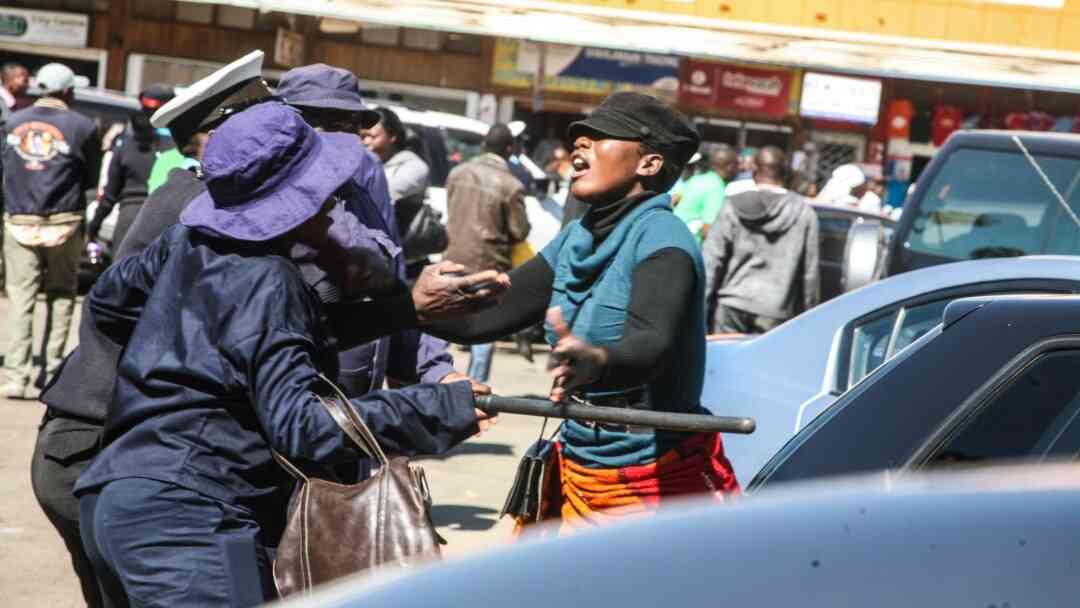
I was passing by the market when I saw many vendors gathered near the service station. I could hear grumbling and a lot of noise.
Mai VaMaidei had already left for the market. She had forgotten her medication for high blood pressure and I was bringing it for her. My shift was starting late and I still had enough time on my hands.
As I approached the large group of disgruntled vendors, a UD Nissan truck carrying municipal police arrived.
Mai VaMaidei must have spotted me as I saw her detach from the group of vendors and she started walking towards me. Of late she was complaining bitterly about harassment at the hands of municipal police. Invariably the daily sales had also plummeted.
“What is the problem?” I asked.
“We are being told to stop vending on the streets,” said Mai VaMaidei.
“But why? This is not a new thing,” I said.
“The police have come to enforce this new rule,” said Mai VaMaidei.
- Matabeleland civic groups fume over voter education hurdles
- Matabeleland civic groups fume over voter education hurdles
- Vendors reflect on tough year
- Matabeleland civic groups fume over voter education hurdles
Keep Reading
“So this is why the police are here?”
“Yes, if we are to continue to trade, one must have a VAT number, and pay taxes like all those with shops,” said Mai VaMaidei
“Okay, so this is about the budget?” I said.
The government wanted to protect the shop owners who paid rent and taxes.
But what was going to happen to all the people whose livelihoods depended on trading on the streets? The industries that were operating could not absorb many workers. Thousands of people were unemployed and the majority ended up on the streets selling vegetables, groceries and second hand clothes.
“So what is going to happen now?” I said.
“The police you see over there are going to ensure that there are no vendors selling in the streets,” said Mai VaMaidei hopelessly.
“I wonder for how long are they going to keep up with this cat and mouse game,” I said.
From where we were standing, I could see that the number of vendors was swelling. I could hear angry voices. I was quite sure that the continued presence of the municipal police could provoke the angry vendors more.
When I looked at Mai VaMaidei, all the lines of worry were all over her face. This was not good for her and I was afraid this could trigger high blood pressure.
“This doesn’t look good, let’s go back home,” I said.
I was worried about her and the other thing; there was a possibility of violence breaking out. There was a lot of tension around.
Down the street, I saw a group of men brandishing clubs and sticks.
“Let’s go away, trouble is brewing, “I told Mai VaMaidei. Sometimes when livelihoods are threatened, people take the law into their own hands.
Mai VaMaidei was reluctant.
“My things are back there, “she said.
“We can come back for them later,” I said. And sure enough, as soon as I finished speaking, stones were violently thrown at the municipal policemen who were gathered around the truck.
After that there was chaos. People were running on the streets in all directions as the municipal police men wielded their baton sticks and hit anything that moved.
Fortunately for us we were a safe distance away. One of the women, Mai VaSimba, who had a stall next to Mai VaMaidei was trying to flee away and had almost gotten away but as she tried to cross the street to the other side, she fell and a Honda Fit which was speeding hit her on the left shoulder and screeched to a sudden halt.
On the street, I saw people running towards the scene of the accident. The driver of the Honda Fit, afraid of mob justice disembarked and ran for dear life.
I last saw the municipal police drive away in their truck. After the chaos, it was going to be business as usual for the vendors.
- Onie Ndoro is a an IELTS tutor, ghostwriter and storyteller. For feedback: X@Onie90396982/email:oniendoroh@gmail.com 0773007173










